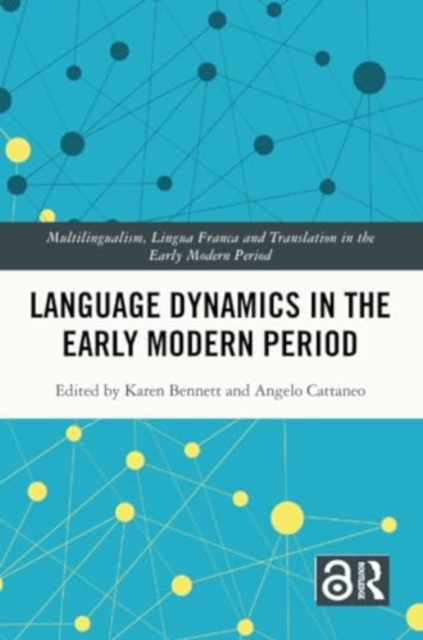
Language Dynamics in the Early Modern Period Paperback / softback
Edited by Karen (NOVA University Lisbon, Portugal) Bennett, Angelo (National Research Council (CNR), Italy) Cattaneo
Part of the Multilingualism, Lingua Franca and Translation in the Early Modern Period series
Paperback / softback
Description
In the fifteenth and sixteenth centuries, the linguistic situation in Europe was one of remarkable fluidity.
Latin, the great scholarly lingua franca of the medieval period, was beginning to crack as the tectonic plates shifted beneath it, but the vernaculars had not yet crystallized into the national languages that they would later become, and multilingualism was rife.
Meanwhile, elsewhere in the world, languages were coming into contact with an intensity that they had never had before, influencing each other and throwing up all manner of hybrids and pidgins as peoples tried to communicate using the semiotic resources they had available.
Of interest to linguists, literary scholars and historians, amongst others, this interdisciplinary volume explores the linguistic dynamics operating in Europe and beyond in the crucial centuries between 1400 and 1800.
Assuming a state of individual, societal and functional multilingualism, when codeswitching was the norm, and languages themselves were fluid, unbounded and porous, it explores the shifting relationships that existed between various tongues in different geographical contexts, as well as some of the myths and theories that arose to make sense of them.
Information
-
Pre-Order
- Format:Paperback / softback
- Pages:264 pages, 5 Tables, black and white; 2 Line drawings, black and white; 6 Halftones, black and white
- Publisher:Taylor & Francis Ltd
- Publication Date:27/05/2024
- Category:
- ISBN:9780367552152
Information
-
Pre-Order
- Format:Paperback / softback
- Pages:264 pages, 5 Tables, black and white; 2 Line drawings, black and white; 6 Halftones, black and white
- Publisher:Taylor & Francis Ltd
- Publication Date:27/05/2024
- Category:
- ISBN:9780367552152






